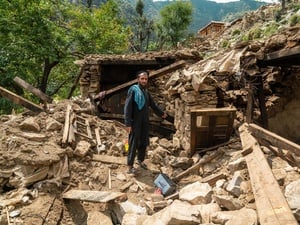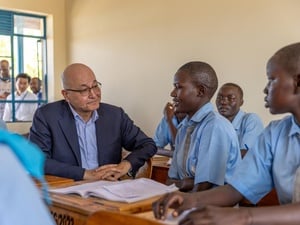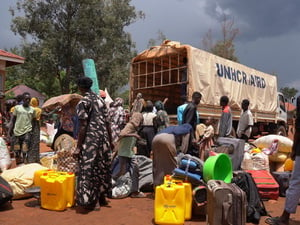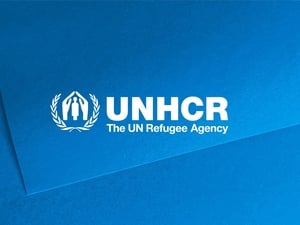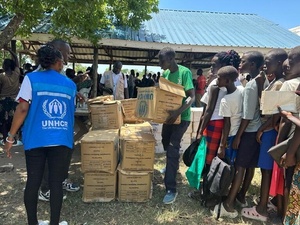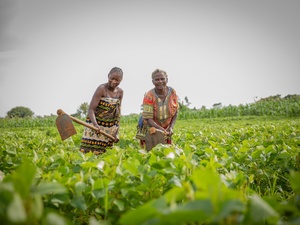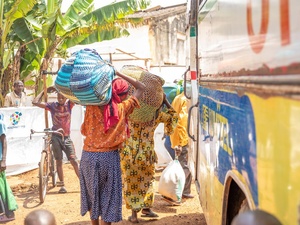Zambia/DRC returns resume after security incident
Zambia/DRC returns resume after security incident
Yesterday, Thursday, we resumed the voluntary repatriation by road and ship of thousands of Congolese refugees living in refugee camps in Zambia back to Moba in the Democratic Republic of Congo, DRC. The repatriation operation, launched in May 2007, was suspended in August after a vicious attack on UN offices in Moba, on the southern shores of Lake Tanganyika in Katanga province, which led to an evacuation of UN staff from the town. An improved security situation allowed UNHCR to return to Moba last week to prepare for the convoy of returnees expected to arrive by ferry on Saturday.
The repatriation operation is expected to help more than 30,000 Congolese refugees to return to Moba from camps in northern Zambia over the next few months.
In one of UNHCR's more unusual repatriation operations, the route home for these returnees includes an overnight crossing of Lake Tanganyika in a 95 year-old, German-built chartered ferry, the MV Liemba. Tonight, Friday, some 400 refugees, who arrived by road from Kala camp, are scheduled to board the ferry in the Zambian port of Mpulungu for the overnight sailing to Moba. Two more convoys are scheduled for early next week. The MV Liemba is a commercial ferry that runs along the eastern shores of Lake Tanganyika. It provides passenger services between the ports of Kigoma in Tanzania and Mpulungu in Zambia and makes a series of passenger stops along the way. Once a month, UNHCR hires the ferry to make three sailings to bring back Congolese refugees from Zambia to the Congolese ports of Moba or Kalemie.
Returnees spend the first two days back in the DRC in a reception centre in Moba where they get mine awareness training, HIV/AIDS information and any necessary medical assistance. Before leaving for their home areas, refugees receive three months food supply from the World Food Programme and UNHCR distributes blankets, soap, kitchen items, buckets and a construction kit to help returnees rebuild their homes.
To further aid their reintegration, UNHCR and partners have supported the formation of nearly 200 self-help groups - mainly in Moba. The groups are being trained to improve their skills in areas such as carpentry, tailoring, masonry and management of small credit. Several schools and health centres in the main areas of return have been rehabilitated. To improve transport access, we have also rehabilitated about 480 kilometres of road linking Pweto, a town on Lake Mweru south of Lake Tanganyika, and Moba.
Since the start of the repatriation operation of Congolese refugees from Zambia in May, UNHCR has helped more than 6,500 people return to eastern Katanga province. Overall, a total of nearly 50,000 Congolese refugees have returned home mainly from Tanzania, Zambia, Republic of the Congo and the Central African Republic since the beginning of 2007 and another 4,400 are expected to return home before the end of the year. The refugees fled mainly to Tanzania and Zambia between 1999 and 2000 to escape conflict which swept across the east of the DRC as rebels launched an uprising against the then president Laurent Kabila and began an advance on the Congolese capital, Kinshasa.


